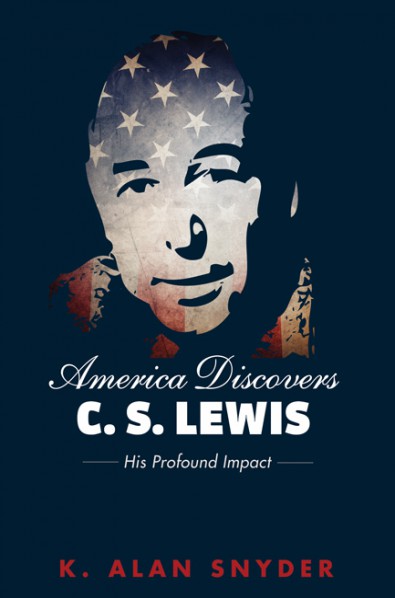On this day fifty-seven years ago, C. S. Lewis died. As many have noted since, his death went relatively unnoticed at the time due to the tragic assassination of President Kennedy that same day. Yet, I ask, which of those two lives had more influence for the Kingdom of God? Which man, through his words and example, has led more people to seriously consider spiritual realities?

Walter Hooper first met Lewis in the summer of 1963. They had corresponded over the years, but this was the first opportunity Hooper had to meet the man whose writings had made such an impact on his life. Although he didn’t expect more than a one-time conversation, Hooper found himself drawn into Lewis’s confidence and into the fellowship of the Lewis circle.
He was with Lewis when the latter went into a coma in July, and stayed with him as he recovered, serving as his secretary, helping him answer that huge volume of letters he always received. Lewis knew he was going to need more help in the future, so he asked Hooper if he would consider taking on the task full-time. Needing to fulfill a teaching commitment that autumn, Hooper nevertheless wanted to take the position. They corresponded to work out the details.

Walter Hooper was a great help to me as I researched and wrote my book, America Discovers C. S. Lewis. One of the chapters focuses specifically on the relationship between Lewis and Hooper. I draw from that chapter for the rest of this post.
When Hooper returned to the United States, he and Lewis kept in touch by mail. Lewis wrote on 3 September that his mind was recovering nicely and that he even authored a book review for the Sunday Telegraph newspaper. As for Hooper himself, Lewis reported, “You have won ‘golden opinions from all sorts of people.'” Further, “I need not say you are missed.” A couple of weeks later, Lewis again praised Hooper and indicated how valuable he had been to him, as he missed his new friend’s companionship: “No one has ever so endeared himself to the whole household,” he told him.
That same letter also went into details about how to manage the transition to permanent secretary when Hooper returned in the new year. Lewis desperately wanted his help, but despaired over being able to afford to pay him what he was worth. He recommended that the projected January return date be moved back to June, for Hooper’s sake, since an English winter may not be to his liking. Hooper’s response exhibited confidence that he would be just fine and not to worry too much about the pay. Writing back to him a few weeks later, Lewis gingerly approached the payment issue again, with great hesitation, embarrassed that he could offer so little. Regardless, he certainly did look forward to a reunion, one that he hoped could be permanent. Lewis affirmed that the day of Hooper’s return would be one of joy for him. “Your absence,” he remarked, “makes a cavity like a drawn tooth!”
That was the last letter Lewis ever wrote to Hooper, who commented later,
Lewis told me many times that I valued his writings too much, and he was always amused when he saw me scribbling something he said in my little notebook. “I know what the divine joke on you would be,” he said near the end of the summer. “I might utter my last words and you won’t be here to write them down!”
As it turned out, I wasn’t. I was in between classes at the University of Kentucky on 22 November 1963 when a colleague told me President Kennedy had been shot. Later that day we learned that the President was dead. Horrible as that was, I was still looking forward to joining Lewis in January. I was just drifting off to sleep in my bed that night when Lewis’s step-son, Douglas, rang to tell me that Jack had died the same hour as President Kennedy.
Lewis’s death, while seeming to be the end of the relationship, actually was only the beginning. Asked to take over the responsibility for Lewis’s literary estate, Hooper entered into that trust with an enthusiasm that has lasted through the decades. It is due to his commitment to the importance of Lewis’s books and essays that we continue to have this Lewis treasury in our hands today. And that mammoth job of collecting and publishing Lewis’s letters (all three volumes) has provided a wealth of inside information on the man who has helped so many not only find their way to the Savior but also for strengthening their faith.

In his introduction to a collection of Lewis essays under the name The Weight of Glory, Walter Hooper offered high praise for his spiritual mentor when he said, “I knew . . . that no matter how long I lived, no matter who else I met, I should never be in the company of such a supremely good human being again. Of all my memories this is the most indelible and is certain to remain so.”
Hooper has often emphasized to people that he only knew Lewis for three months, yet upon further reflection he wondered if he was doing a disservice to Lewis by using the word only. Sometimes one can develop an intimate friendship in a relatively short period, he mused, when other relationships that have gone on for years may never achieve that same level of intimacy. “I am ashamed to admit that I once thought that because the plans Lewis and I made together did not run on into the years, I was somehow cheated. If not wicked, it is ungracious.”
While Christians should never turn an ordinary human being into any sort of idol, it isn’t wrong to honor those who faithfully show the path to Truth. On this day, we remember C. S. Lewis.
